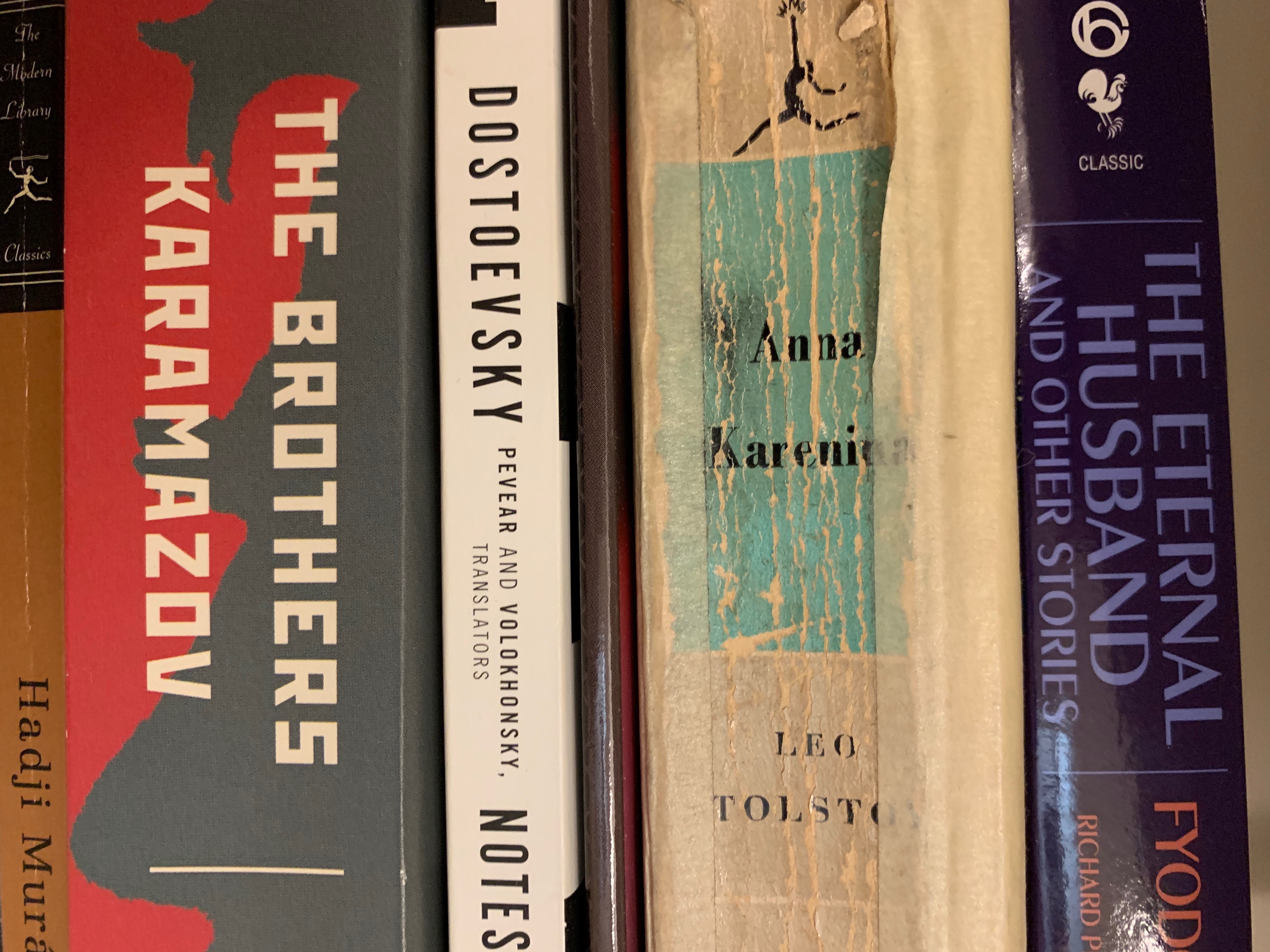This essay was published in Bletilla: Memories Preserved From Times Lost, which can be found here
The last eight months of my life have been cursed with Anna Karenina. Nearly 1,000 pages of languishing Russian aristocratic life, printed in the smallest legible text possible. Like many classical Russian works, it is filled with romantically mundane portraits of everyday life that often double as thinly veiled metaphors. Most abundantly, there is a concentration of raw misery conveyed in the beautifully written prose. As if Leo Tolstoy is deeply unsatisfied with the society constructed around him, but cannot help but express this in his own prideful way. In that sense he’s a selfish writer, penning his angry critique into chapters that were then disseminated into the general public. Expressing emotions that should best be kept to oneself or those close.
In the year 2020 I published nothing I wrote. Actually, it would be more accurate to say that I wrote very little at all. Outside of that domineering virus spreading around the world at the time, a realization had slowly poisoned my conscious: the idea that in order to write about ones life and memories, one must have a handful of narcissistic traits. While not everything I write is “experience writing” centered purely on me, a great deal of it is. Inside of a quote that I have much adoration for, Franz Lebowitz states:
“Your life story would not make a good book. Do not even try.”
It seems as though that sentence has been engraved inside of my psyche. Rather than pour my experiences outward to my adoring and ghostly audience, I decided to close the floodgates, and take them inward.
Fyodor Dovstoyevsky’s seminal novella Notes From Underground is in essence, a story of a bitter man that has a compulsion to rant. Self-nicknamed “the underground man,” the narrator starts off with a philosophical tirade on human suffering and misery. It is a carefully distilled rant, bordering on psychotic, covering human suffering and morals. Deeply unpleasant to read, you will quickly come to realize that the “underground man” is simply a mouthpiece for Dovstoyevsky disdain for parts of Russian society. These overt criticisms are often mirrored in Anna Karenina, though in a much subtler fashion.
The second part of Notes from Underground, titled Apropos of the Wet Snow, is a handful of anecdotal stories by “the underground man.” A narration of his empty, retired life in Russia. As if he had taken the the ideology in the first part and lived it to its fullest, he goes around wallowing in his misery, spreading it in the form of external monologues (rants). One chapter hit me in particular: after visiting a prostitute, the underground man wakes up and decides that now is a good time to lay on the vilest rant possible to the poor, green woman. He goes into excruciating detail about the ways society and life will fail her, how misery or consumption will take her, emphasizing that she will in fact die some day. In all this truly depressing barrage of words, Dostoyevsky, or the underground man encapsulates the essence of the rant:
Man only likes to count his troubles; he doesn’t calculate his happiness…
Like Notes From Underground, Many of Dostoyevsky’s works contain chapter-long rants from his most desperate characters. But by virtue of the medium, they naturally lack the intimacy that rants can have. It feels good to rant- like a pressure valve of thoughts being released from one’s mind. The danger of course, is that not everyone wants or is equipped to handle the scalding steam that you may put out.
Therefore, rants must be reserved for close friends and lovers that can understand or empathize with your struggle, especially if you’re talking about some sensitive or upsetting subject matter. To rant to someone is to have the utmost trust in them, giving them details about your life you would never want revealed to another soul.
Many realizations come from late night rants of misery, written in text. The little lies you tell yourself to keep things going tend to mysteriously be missing when you write faster than you can think. After all, ranting in this way is writing the subconscious. Provided your mind is free from distraction and you never think about the structure of your sentences and words, it can bring fourth the inner self in a way not possible verbally. Most importantly, one must never forget that a rant is purely for ones self. There should be no worry that you are being too self-absorbed or narcissistic. If you truly are, it will be revealed on its own. The only embarrassment you should feel in the context of a rant is when you re-read it days later and realize that things were not as bad as you thought they were at the time.
I’m actually borrowing this old, crumbling copy of Anna Karenina. It was one of around seven to eight copies that a woman I went on a single date with owned. According to her, it was the best translation out of them all. More realistically it was likely the one she was willing to part with considering she still hadn’t read a single copy. We haven’t spoken to each other since then, and I haven’t decided if I want to give it back after I’m done. Maybe my insufferable rant about Notes From Underground scared her off.
Previously titled “The Death of Fydor Dostoevsky”


